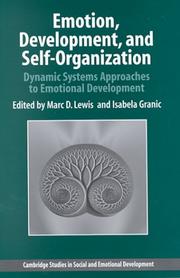| Listing 1 - 3 of 3 |
Sort by
|
Book
ISBN: 1610397126 9781610397124 Year: 2016 Publisher: New York : BBS/Public Affairs,
Abstract | Keywords | Export | Availability | Bookmark
 Loading...
Loading...Choose an application
- Reference Manager
- EndNote
- RefWorks (Direct export to RefWorks)
"Neuroscientist Lewis (Memoirs of an Addicted Brain) presents a strong argument against the disease model of addiction, which is currently predominant in medicine and popular culture alike, and bolsters it with informative and engaging narratives of addicts' lives ... Even when presenting more technical information, Lewis shows a keen ability to put a human face on the most groundbreaking research into addiction. Likewise, he manages to make complex findings and theories both comprehensible and interesting... This book, written with hopeful sincerity, will intrigue both those who accept its thesis and those who do not"--
Addicts --- Comportement compulsif --- Compulsive behavior --- Drug abuse. --- Drug addicts --- Drug addicts. --- Dépendants --- Neurosciences. --- PSYCHOLOGY / Psychopathology / Addiction. --- Polytoxicomanie --- SCIENCE / Cognitive Science. --- SELF-HELP / Substance Abuse & Addictions / General. --- Substance abuse --- Substance-Related Disorders. --- Toxicomanes --- Toxicomanie. --- Psychology. --- Étiologie. --- Etiology. --- Psychologie.

ISBN: 052164089X 0521525276 0511527888 Year: 2000 Publisher: New York (N.Y.) : Cambridge university press,
Abstract | Keywords | Export | Availability | Bookmark
 Loading...
Loading...Choose an application
- Reference Manager
- EndNote
- RefWorks (Direct export to RefWorks)
In the last twenty to thirty years, a new way to understand complex systems has emerged in the natural sciences - an approach often called non-linear dynamics, dynamical systems theory, or chaos theory. This perspective has allowed scientists to trace the emergence of order from disorder and complex, higher-order forms from interactions among lower-order constituents. This is called self-organization, and is thought to be responsible for change and continuity in physical, biological, and social systems. Recently, principles of self-organizing dynamic systems have been imported into psychology, especially developmental psychology, where they have helped us reconceptualize basic processes in motor and cognitive development. Emotion, Development, and Self-Organization is the first book to apply these principles to emotional development. The contributors address fundamental issues such as the biological bases of emotion and development, relations between cognition and emotion in real time and development, personality and individual differences, interpersonal processes, and clinical implications.
Emotions --- Self-organizing systems --- #PBIB:2000.4 --- Learning systems (Automatic control) --- Self-optimizing systems --- Cybernetics --- Intellect --- Learning ability --- Synergetics --- Feelings --- Human emotions --- Passions --- Psychology --- Affect (Psychology) --- Affective neuroscience --- Apathy --- Pathognomy --- Emotions. --- Self-organizing systems. --- Health Sciences --- Psychiatry & Psychology

ISBN: 9780511527883 9780521640893 9780521525275 Year: 2000 Publisher: Cambridge Cambridge University Press
Abstract | Keywords | Export | Availability | Bookmark
 Loading...
Loading...Choose an application
- Reference Manager
- EndNote
- RefWorks (Direct export to RefWorks)
| Listing 1 - 3 of 3 |
Sort by
|

 Search
Search Feedback
Feedback About UniCat
About UniCat  Help
Help News
News